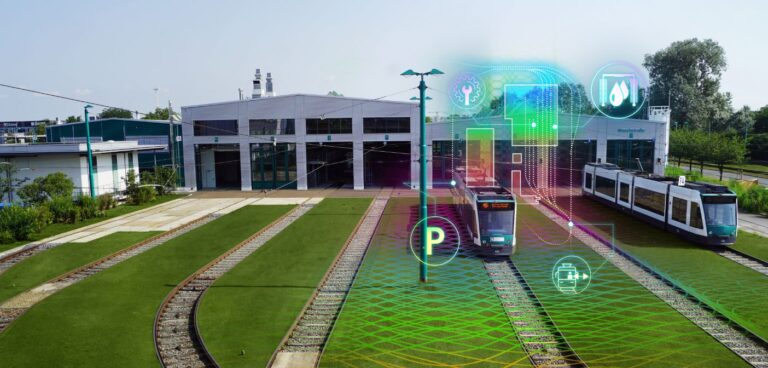Siemens Mobility and ViP Verkehrsbetrieb Potsdam have successfully demonstrated a test of the AStriD (Autonomous Tram in Depot) research project.
A consortium consisting of Siemens Mobility, ViP, the Karlsruhe Institute for Technology (KIT), the Institute for Climate Protection, Energy and Mobility (IKEM), and Codewerk began its joint research on a fully automated tram depot in October 2019. The technology is expected to be market-ready in 2026.
Albrecht Neumann, CEO, rolling stock at Siemens Mobility, said: “AStriD is an important milestone on the way to achieving self-driving trams. Working with our partners, we are using valuable synergies to digitalise the depot and reduce time-consuming on-site shunting.
“By automating the depot, we can better support our customers in ensuring sustainable value growth over the entire lifecycle and guaranteeing the availability of their trams.”
The R&D project is being implemented at the depot operated by ViP. “Autonomous driving along the tram route and within the depot relieves our drivers and increases the safety of our passengers and other road users,” said Uwe Loeschmann, CEO of ViP.
“Autonomous tram operation in our depot with the AStriD system opens up the possibility of automated cleaning, supply and parking processes with central control and increased operational safety.”
In 2018, Siemens Mobility and ViP demonstrated a test tram operating under real road conditions on a section of Potsdam’s tram network. The research project that resulted from the initiative aims at developing a digital depot on the basis of self-driving trams.
The technical feasibility of the concept will be demonstrated with autonomous service functions, such as moving a tram through a washing facility to a siding. Making depot automation commercially viable is thus a first stage of introducing autonomous driving.
The three-year project, which is being funded by Germany’s Federal Ministry of Transport and Digital Infrastructure (BMVI) as part of its Modernity Fund (mFUND), is considering the various legal and economic conditions that must be fulfilled for the approval and operation of an autonomously driving tram.
The consortium partners have divided the project into different work packages. Siemens Mobility is developing the self-driving tram in the depot and a yard management system that gives the tram its driving orders. In addition, it is working with KIT to develop a digital map that is the basis for tracking the tram’s location within the depot.
ViP is providing the tram and the depot infrastructure, enabling access to all required data, systems, and facilities, and evaluating the project’s findings from the perspective of a depot operator.
The KIT is contributing its expertise in the specification and digitalisation of depots, the automation of processes, and identifying the necessary data, and is supporting the development of the digital map.
The IKEM is analysing and evaluating the legal and economic issues related to the project.
Codewerk specialises in industrial systems and, among other things, develops software for data communication on rail vehicles. In this project, Codewerk is supporting the communication between the tram and control centre and is responsible for integrating parts of the depot infrastructure.





